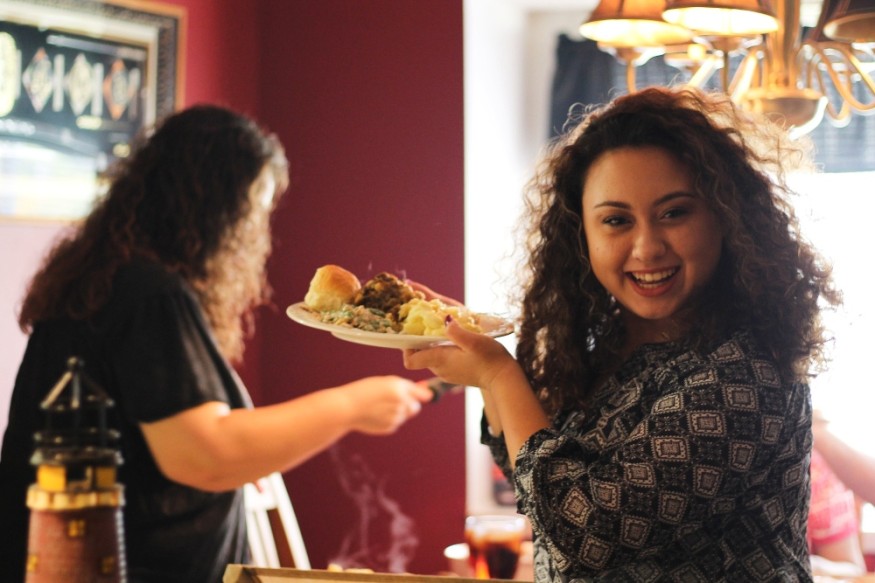Thanksgiving for Latinos Is Different

Thanksgiving brings families together. It is also an opportune time for Latinos to reunite with their loved ones and enjoy each other's company over delicious food and conversation.
Thanksgiving, originated as a harvest festival that commemorates the first Thanksgiving, during which the pilgrims from England celebrated their first harvest in the "New World" in October 1621. A federal holiday largely considered as a time to give thanks for one's blessings, Thanksgiving is also jammed with controversies and considered a day of mourning to commemorate the oppression and mass killings of Native Americans during the colonization. For many decades, Native Americans have been protesting the holiday and more people have supported their cause.
This includes Latinos and their immigrant families due to the fact that Thanksgiving is widely celebrated despite the horrendous treatment towards Americas' Indigenous peoples, which have included massacres, terror and banishment from their ancestral domains.
As the federal holiday approaches, Remezcla shares the thoughts of some Latinos about Thanksgiving.
Dominican student Imani Celeste Fuentes, 20, considers Thanksgiving as one of her favorite holidays, mainly because of the food. She gets hype because there is a variety of dishes that she can keep digging in for the second and even third time like moro, white rice, beans, pernil, pastelitos, potato salad and maduros.
Fuentes also loves how the holiday allows all of them a time to relax and sit together. She doesn't mind staying home because she enjoys the company of her family since most of the time, everyone is busy with work and school. She also loves watching both her grandmothers play dominoes for hours, and since Dominicans love to party she would do a dance battle with her uncle.
Meanwhile, Salvadoran Xemiyulu Manibusan Tapepechul, 29, founding artistic director of Nelwat Ishkamewe and director of art/culture at Trans-Latinx DMV believes that Thanksgiving is assimilation. It is grounded in a lot of ignorance and revisionism. Migrant communities deem it positive because assimilation is seen as something that needs to be done in order to survive.
Raised in an indigenous Salvadoran community often subjected to military acts and genocide, he thinks it is offensive to see some migrant communities, particularly Central Americans, dress up as pilgrims and dress up as U.S. native folk. He adds, it is unfortunate that Latin American people are still considered immigrants and has to assimilate into this idea of what it means to be an American, which it's a step away from their own culture and a step away from their understanding of the world.
For him, most Latin American people do not celebrate Thanksgiving for its history of genocide, rather they see the holiday as an opportunity to have a day off and be with their family and friends.
When Dominican writer and yoga instructor Moraima Capellan Picardo's family first moved to Brooklyn from their homeland, they celebrated Thanksgiving for the first few years thinking it is part of assimilating into becoming American, but stopped celebrating when they learned about its horrifying history.
Picardo also thinks it is disrespectful to Native Americans who were subjected to mass genocide and wars because Thanksgiving has turned into capitalism and consumption, which dishonors the real history.
Picardo who worked a lot in the food industry where she had seen a lot of food being wasted, thinks the celebration is more about consumption and gluttony than it is about actually giving thanks. Aside from that, it is hypocritical because the next day which is Black Friday, people would rush to the stores to consume even more things they don't even need.
Regardless of its historical significance, Thanksgiving for Latinos is simply time to pause and reflect about wonderful moments with great people and opportunities in life worthy of gratitude.
Subscribe to Latin Post!
Sign up for our free newsletter for the Latest coverage!

















